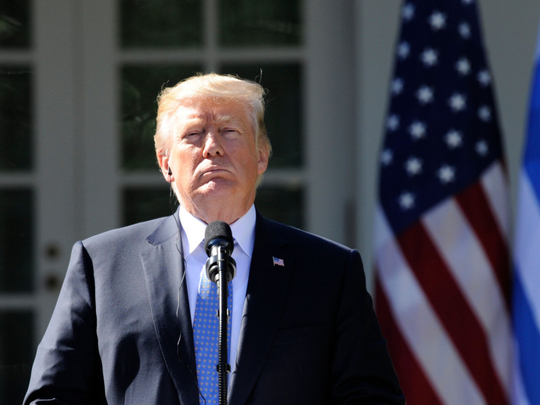
According to a new CBS News poll, almost 60 per cent of the American public believes that the current Republican tax plan favours the wealthy. Some people see this number as a sign that the plan is in trouble; I see it as a sign that Republican lies are working far better than they deserve to.
For the plan does indeed favour the wealthy — overwhelmingly, undeniably. It’s shocking that as many as 40 per cent of Americans don’t realise this.
It’s not difficult to see how the plan is tilted towards the very top. The main elements of the plan are a cut in top individual tax rates; a cut in corporate taxes; an end to the estate tax; and the creation of a big new loophole that will allow wealthy individuals to pretend that they are small businesses, and get a preferential tax rate. All of these overwhelmingly benefit the wealthy, mainly the top 1 per cent.
There are also some measures affecting middle-class families, but they’re relatively small change — and some of them would actually raise taxes. Overall, the nonpartisan Tax Policy Centre estimates that by 2027, almost 80 per cent of the gains from the plan would go to the top 1 per cent, just 12 per cent of the gains to the middle 60 per cent of Americans — and that more than a quarter of middle-class families would actually see their taxes go up.
So the question about this plan isn’t whether it favours the wealthy — it does, to an outrageous extent. The questions we should be asking instead are why Republicans are pushing this so hard, and how they can hope to get away with it?
Bear in mind that there is essentially no popular constituency demanding tax cuts for the rich. By a large margin, the general public wants to see taxes on corporations and the wealthy go up, not down; even Republicans are divided, with only a modest margin in favor of cuts.
Yet, tax cuts for the rich are the overriding objective of the modern GOP. They were the principal motivation for the attempt to repeal the Affordable Care Act, since that would also mean repealing the high-income taxes that pay for it; from Republicans’ point of view, depriving millions of health care was just a minor side benefit. And now tax cuts for the wealthy are pretty much the only thing left on the GOP’s legislative agenda.
In fact, it’s becoming increasingly clear that the hope for tax cuts is the main thing keeping Congressional Republicans in line behind President Donald Trump. They will back him as long as they think he might get those tax cuts through.
So what’s behind this priority? Follow the money. Big donors are furious at missing out on the $700 billion (Dh2.57 trillion) in tax cuts that were supposed to come out of Obamacare repeal. If they don’t get big bucks out of tax “reform”, they might close their pocketbooks for the 2018 mid-term elections. Beyond that, modern conservatism is a sort of ecosystem of media outlets, think tanks, lobbying outfits and more that offers many lucrative niches — so-called wing-nut welfare — for the ideologically reliable. And that means being reliable to the interests of the wealthy.
But how can an administration that pretends to be populist, to stand up for ordinary (white) working people, sell such elitist policies?
The answer is a strategy based entirely on lies. And I mean entirely: The Trump administration and its allies are lying about every aspect of their tax plan. I’m not talking about dubious interpretations of evidence or misleading presentation of the facts — the kind of thing the administration of former president George W. Bush to specialise in. I’m talking about flat-out, easily refuted lies, like the claim that America has the world’s highest taxes (among rich countries, we have close to the lowest), or the claim that estate taxes are a huge burden on small business (almost no small businesses pay any estate tax). Nor do I mean that there are just one or two big lies. There are many — so many I literally don’t have space to so much as list them in this column. In a long blog post last week, I tried to provide a systematic list; I came up with 10 major Republican lies about tax cuts, and I’m sure I missed a few.
So, politically, can they really get away with this?
A lot depends on how the news media handles it. If an administration spokesperson declares that up is down, will news reports simply say “so-and-so says up is down, but Democrats disagree”, or will they also report that up is not, in fact, down? I wish I were confident about the answer to that question. One thing we know for sure, however, is that a great majority of Republican politicians know perfectly well that their party is lying about its tax plan — and every even halfway competent economist aligned with the party definitely understands what’s going on.
What this means is that everyone who goes along with this plan, or even remains silent in the face of the campaign of mass dissimulation, is complicit — is in effect an accomplice to the most dishonest political selling job in American history.
— New York Times News Service
Paul Krugman is a Nobel Prize-winning economist and distinguished professor in the Graduate Centre Economics PhD programme and distinguished scholar at the Luxembourg Income Study Centre at the City University of New York.







